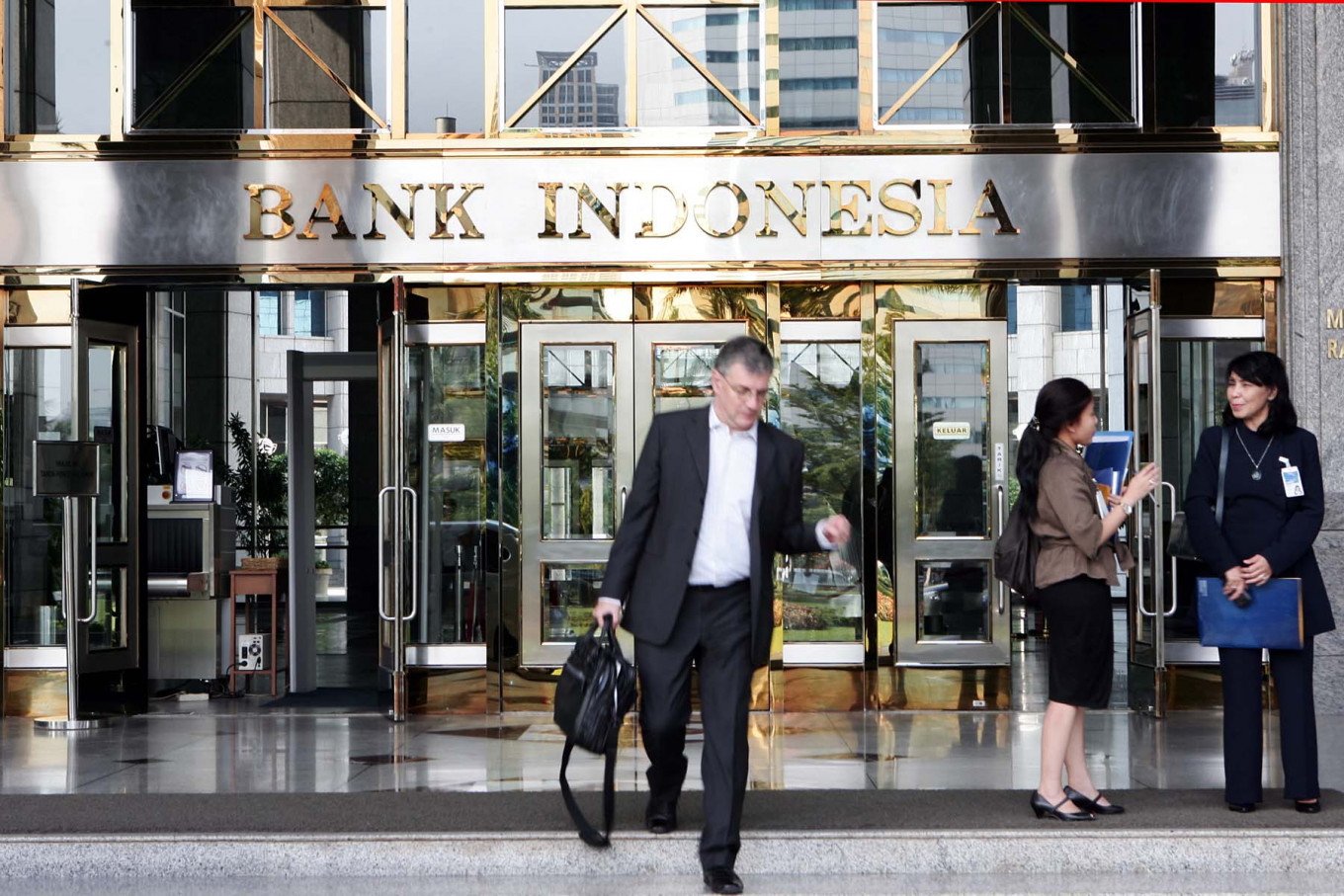Popular Reads
Top Results
Can't find what you're looking for?
View all search resultsPopular Reads
Top Results
Can't find what you're looking for?
View all search resultsBI holds benchmark rate at 5% amid snail's pace loan growth
Change text size
Gift Premium Articles
to Anyone
B
ank Indonesia (BI) has decided to hold its benchmark interest rate at 5 percent amid a plunge in loan growth and improvements in the global and domestic economy.
“With improving global and domestic economic conditions, the board of governors meeting on Jan. 22 and 23 decided to keep the BI seven-day reverse repo rate at 5 percent,” BI Governor Perry Warjiyo said during a press briefing in Jakarta on Thursday.
The central bank also maintained the deposit facility rate at 4.25 percent and lending facility rate at 5.75 percent.
The benchmark rate affects consumer loans, corporate loans and mortgage interest rates as well as bond yields, among other things.
BI data show that bank loan disbursement expansion dropped to 6.08 percent in 2019, the lowest since 2009, from 11.7 percent in 2018, signaling weak economic activity.
The central bank cut its benchmark rate by a total of 100 basis points (bps) last year to help push economic expansion. The country’s economy grew by 5.02 percent year-on-year in the third quarter, the slowest pace in more than two years, as growth in household spending remained stable while growth rates in exports and investment plunged.
“Monetary policy will remain accommodative and consistent this year in line with inflation and external stability that remain in check as well as measures taken to maintain the domestic economic growth momentum,” Perry added.
In a research note by the Social and Economic Research Institution of University of Indonesia’s Economic and Business School (LPEM FEB UI), the research team projected positive effects would occur this year following the central bank’s dovish stance in 2019.
“However, we see that further easing will be able to help spur loan growth that is needed by the domestic economy to prevent further aggregate demand weakening,” the Macroeconomic and Financial Sector Policy Research team wrote.










